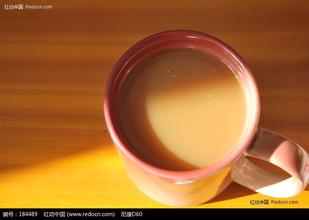Introduction to the flavor and taste of Arusha Coffee Manor in Tanzania with the aroma of grapefruit
In October 1995, the first multi-party general election was held in Tanzania. Mkapa was elected president of the United Republic, and Salmin was re-elected president of Zanzibar by a narrow margin.
After 1996, the Sang opposition party stepped up its action against the coalition. With the firm support of the coalition government, the mulberry government has taken tough measures to suppress opposition activities and resolutely safeguard the coalition system.
In October 2000, Mkapa was re-elected president of the United Republic, and Karume, a candidate of the Revolutionary Party, was elected president and repeatedly expressed his position of safeguarding national unity, which further dealt a blow to the separatist forces.
Since 2001, the coalition government has continued to consolidate unity, maintain the coalition regime, strive for moderate forces, crack down on the separatist forces in Zanzibar, and take care of the allocation of budgetary funds and other issues related to Zanzibar's vital interests. Instead of openly advocating separation, URUF has demanded that Zanzibar be given more autonomy.
In December 2005, Kikwete was elected President of the United Republic, and Karume was elected President of the United Republic.
In early 2008, the Revolutionary Party and the RUF held negotiations on the establishment of a coalition government in Zanzibar, but no agreement was reached.
In 2009, the joint issue of Tanzania and mulberry has made some progress, but the dispute between the mainland and Sangdao on the ownership of mulberry oil and gas resources has heated up. Political reconciliation negotiations between the Sangdao Revolutionary Party and the main opposition party RUF resumed at the end of the year after a break at the beginning of the year. President Karume of Sang and General Secretary of RUF Hamad held historic talks, which attracted widespread attention from all parties.
In early 2010, there was a new trend of political reconciliation in Sangdao, and the Revolutionary Party and the Public RUF reached an agreement on the formation of a Sangdao unity government. In July of the same year, the Sang referendum passed a resolution on establishing a government system of national unity. In November, the general election of Sang was held smoothly, and the government of national unity was established on Sangdao. President Sang, the second vice president and 11 ministers came from the Revolutionary Party. Sang's first vice president and 8 ministers came from the RUF.
Tanzanian coffee is mostly washed. After picking, coffee farmers will send the coffee fruit to the nearest processing plant for processing. The treatment step of the water washing method is to screen and remove the impurities in the coffee fruit, then remove the coffee pulp and exocarp, and send it into the fermentation tank to remove the pectin layer on the inner pericarp by fermentation. clean and then dry. Coffee in Tanzania is graded in the same way as in Kenya, both according to the size of coffee beans. When screening raw coffee beans through a sieve with fixed size holes, the larger the number of the sieve is, the larger the particles of raw coffee beans are. The flat beans classified by size are mainly AA+, AA, AB. In addition, PB (peaBerry), which is more produced in Kenya and Tanzania, also has a set of sieve size standards dedicated to grading the size of round beans.
Tanzania is also often compared with its nearest neighbor Kenya. It is said that the earliest Arabica coffee in Tanzania was introduced by Christians from Kenya and is similar to Kenya in flavor characteristics. With grapefruit aromas and soft and bright acidity. However, because the economic conditions of Tanzania are worse than those of Kenya, the production conditions are poor. Tanzania's quality control is not strict enough, destroying the quality of coffee in many processing links, which can not compete with Kenya, which is famous for its high quality. Although it is similar to the Kenyan flavor, Tanzania as a whole is smoother and softer and belongs to the balanced type. With moderately low acidity and sweetness, dark chocolate finish, moderate mellow thickness. Compared with Kenya, which has a prominent personality, Tanzania is less hierarchical and does not give a very prominent feature after drinking, which makes people less impressive. But on the contrary, its soft and round characteristics are also more agreeable, which is easy to be accepted by people who are new to coffee.

Important Notice :
前街咖啡 FrontStreet Coffee has moved to new addredd:
FrontStreet Coffee Address: 315,Donghua East Road,GuangZhou
Tel:020 38364473
- Prev

Introduction to Snow vein Manor Coffee with rich sour flavor and taste characteristics
In 1932, the Chaco War broke out between Bolivia and Paraguay for oil resources in the North Chaco region. Bolivia was defeated and lost a large area of territory. The people's armed uprising broke out in April 1952, and Paisdensolo, leader of the nationalist revolutionary movement, became president. Since then, there have been frequent military coups and long-term political instability. Modern assets with South American characteristics were restored in October 1983
- Next

Introduction to the flavor and taste characteristics of chocolate-flavored Indonesian Fuyin Manor coffee
In July 2004, Indonesia held its first direct presidential election in history. Former Minister of political Security Susilo Bambang Yudhoyono and Minister of people's Welfare Coordination Muhammad Jusuf Kalla won two rounds of direct elections and were sworn in as president and vice president on October 20, 2004. In August 2005, the Indonesian government reached a peace agreement with the Aceh Independence Movement separatist organization. July 2006, India
Related
- Does Rose Summer choose Blue, Green or Red? Detailed explanation of Rose Summer Coffee plots and Classification in Panamanian Jade Manor
- What is the difference between the origin, producing area, processing plant, cooperative and manor of coffee beans?
- How fine does the espresso powder fit? how to grind the espresso?
- Sca coffee roasting degree color card coffee roasting degree 8 roasting color values what do you mean?
- The practice of lattes: how to make lattes at home
- Introduction to Indonesian Fine Coffee beans-- Java Coffee producing area of Indonesian Arabica Coffee
- How much will the flavor of light and medium roasted rose summer be expressed? What baking level is rose summer suitable for?
- Introduction to the characteristics of washing, sun-drying or wet-planing coffee commonly used in Mantenin, Indonesia
- Price characteristics of Arabica Coffee Bean Starbucks introduction to Manning Coffee Bean Taste producing area Variety Manor
- What is the authentic Yega flavor? What are the flavor characteristics of the really excellent Yejasuffi coffee beans?

